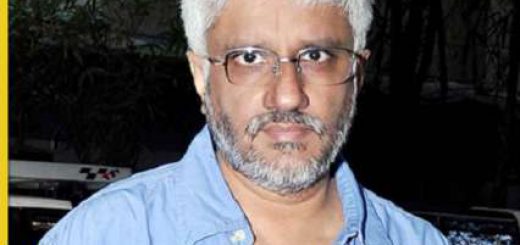Cup half empty, and half full
Riaz almost proved that despite organisational shortcomings and international isolation, a Pakistan pacer can win a game single-handedly.
A man from Sialkot, Immi bhai, runs this pokey restaurant on Crown Street, near the Sydney Cricket Ground. This happens to be the favourite haunt of taxi drivers from Pakistan. Like most cabbie joints, the food here is cheap and tasty, the beverages are strong, the waiters are friendly and, unlike the food courts in malls, the manager here doesn’t stare at you when you stay seated after the table is cleared.
This place has a thriving takeaway business, so the chairs are mostly occupied by men in crumpled uniform with their bluetooth earphones plugged in. Most of them are Immi bhai’s friends; some known to him since school days. They talk about property prices, fresh-off-the-boat cousins and, today, about Pakistan’s loss to Australia on Friday.
Staying down the lane for a week now, a regular of sorts, I ask Immi bhai if the corner table can be my temporary workstation. “Koi maslaa nahi,” he says. So, in the very hygienic curry place, I am the only fly on the wall. By evening I’m also wiser, getting to understand what it is to be a Pakistan cricket fan and knowing answers to some puzzling questions. What does it take to follow a team that can be World Cup contenders one day and wooden spoon-worthy the next? Why does Shahid Afridi, who before the last game had a tournament batting average of just above his shirt number 10, have an undying fan-following? How does Pakistan pick itself up after every fall?
Related
It’s the morning after the third quarterfinal in Adelaide. Immi bhai and friends have slept over the result. They are convinced that the better team won. They are disappointed that it wouldn’t be Pakistan vs India at the venue that’s just the minimum fare away from where they are huddled. On the wall above is a television set that speaks the language of the group below. It’s morning in Pakistan, but early afternoon here. On the Pakistani news channel, too, they are discussing cricket. It’s a diverse panel. The news anchor with a sharp voice and sharper features, is talking to former captain Rashid Latif, one non-player expert, and a couple of singers. They are being heard by a studio audience and, of course, some Sydneysiders having tea ten thousand kilometres away. There is also a comedian who is playing the fool — he thinks he is Wahab Riaz. He keeps blowing kisses, like the kind Shane Watson received at the Adelaide Oval in between deliveries that threatened to crash through his helmet visor.
On the stage, a young girl is sporting a big, bright smile. The anchor, dissecting the loss, asks why she seems happy while they were mourning. “Ab haar ki aadat si pad gayi hai,” she says. She gets applauded; it seems many agree with her. The anchor too acknowledges the smart retort and claps.
Outside the television, a few heads shake. However, not everyone is taking the defeatist line. So what if this was their team’s 4th defeat in 8 games in a tournament where Pakistan last played the final in 1999? The young waiter floats an excuse. He makes a fist and opens it slowly, finger-by-finger, as he counts: “Hafeez, Junaid, Ajmal, now Irfan. So many injured, how can you win?” Immi bhai puts his 2 pence, “Professor (Hafeez) is as good as two — opener and off-spinner.”
While on excuses, someone mentions Rahat Ali. Few abuses fly across tables for the man who dropped Shane Watson. On the show, Wahab the comic keeps shouting, “Mujhe Rahat chahiye, mujhe Rahat do,” sporadically. After a while, another ex-cricketer Basit Ali is on television. He has put on weight. Like his batting, his statement is profound. “Please try to understand, that’s how our fast bowlers field. Rahat had taken a much harder catch earlier,” he pleads. Basit has seen life, he has been on the field with pacers. He knows what he is saying but he is not cutting much ice with the panel. He changes the track. “But I need to say something, watching Wahab bowl was great, (Wasim) Akram ki yaad aa gayi,” he says.
The mood, the narrative and the conversation takes a 180-degree turn. They talk about Watson’s helplessness, Wahab’s variety and his flying kiss. They don’t mention Wahab’s heart-breaking cry of hurt when Rahat Ali dropped Watson.
Nothing excites a Pakistan fan like a fast bowler in green making a batsman look laughable. Even the sorrow of a World Cup loss isn’t so overriding an emotion that it can envelop the joy of watching one of them clocking 150 kph and making the ball climb. It’s something Pakistan has, while the influential and prosperous big brother next door doesn’t. Over there, speed-gun readings decide your mass appeal. Batsmen can be popular, they can even be stars, but fast bowlers can be cult heroes and prime ministers-in-waiting. Line-and-length isn’t their style. Pacers aren’t taught to aim at the top of off-stump, they target something higher, something human, something that is capable of defending itself. If Glenn McGrath was born in Pakistan, he would have probably retired after a brief stint with WAPDA (Water and Power Development Authority) or Sui Gas.
Individual brilliance
Inconsistency and losses they can take, but they can’t watch their cricketers go down without a fight. Wahab showed that the assembly was working, that the machinery wasn’t well-oiled but this wasn’t a system failure. He almost proved that, despite organisational shortcomings or international isolation, a Pakistan pacer can win a game single-handedly. Pakistan loves bravado, it likes those lonely boys on the burning deck.
Only, Shahid Afridi had it in him to be on par with the pacers. In Peshawar, they still start walking once Afridi gets out. In Australia, I saw an entire family, a 70-year-old included, with green shirts and Lala written on back. At Adelaide, Lala hit one six and gave it a long loving gaze, like only he can. For years it seems he’s been more keen to hit higher than longer. There were laughs all around, they love Afridi’s sixes, it has the power to subside pain.
Back to TV, the World Cup special show is ending. This is that time when the audience gets gift vouchers for answering lame questions. They ask Wahab’s nickname. “Vicky,” shouts the young waiter from inside the kitchen. The final question is a tribute of sorts. “Which ODI record does Shahid Afridi still hold?” asks the host. A boy looking as young as Afridi raises both his hands. The anchor knows he has got the answer. “Most sixes in ODIs,” he says triumphantly. Pakistan doesn’t allow itself to be depressed by the big picture; it’s those small pleasures that keep them going. From one World Cup to another.
Source:: Indian Express







